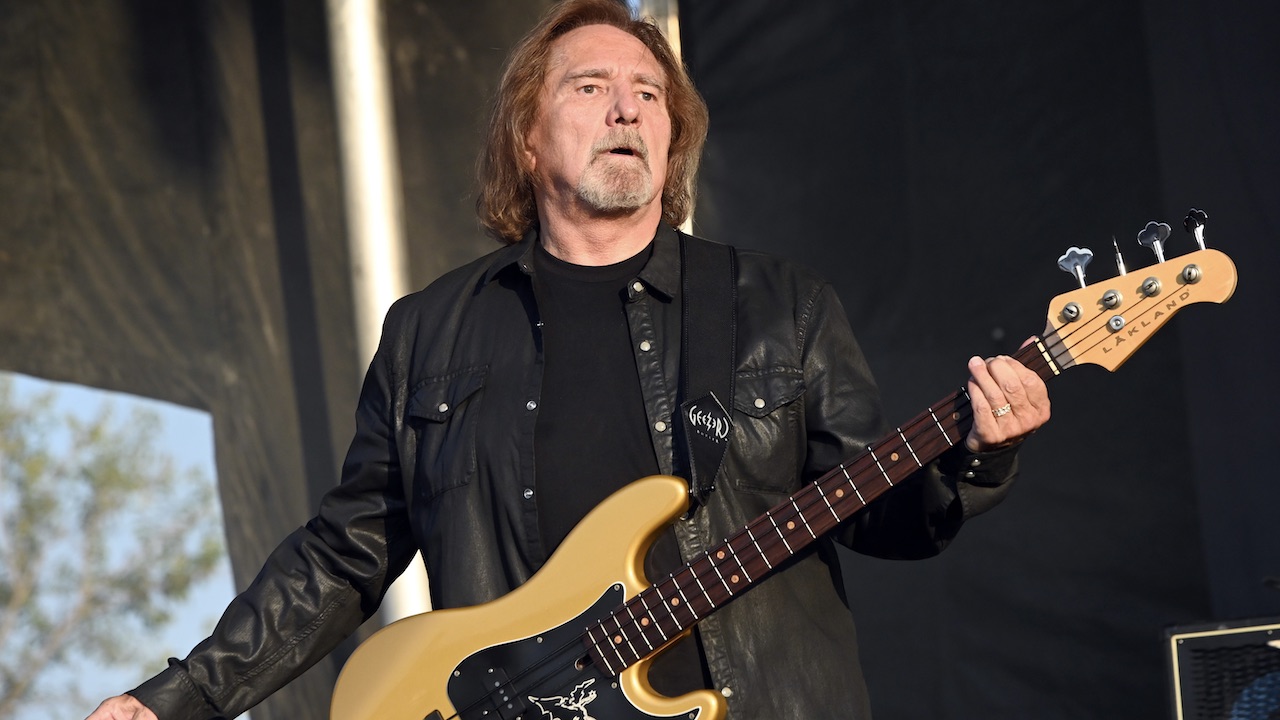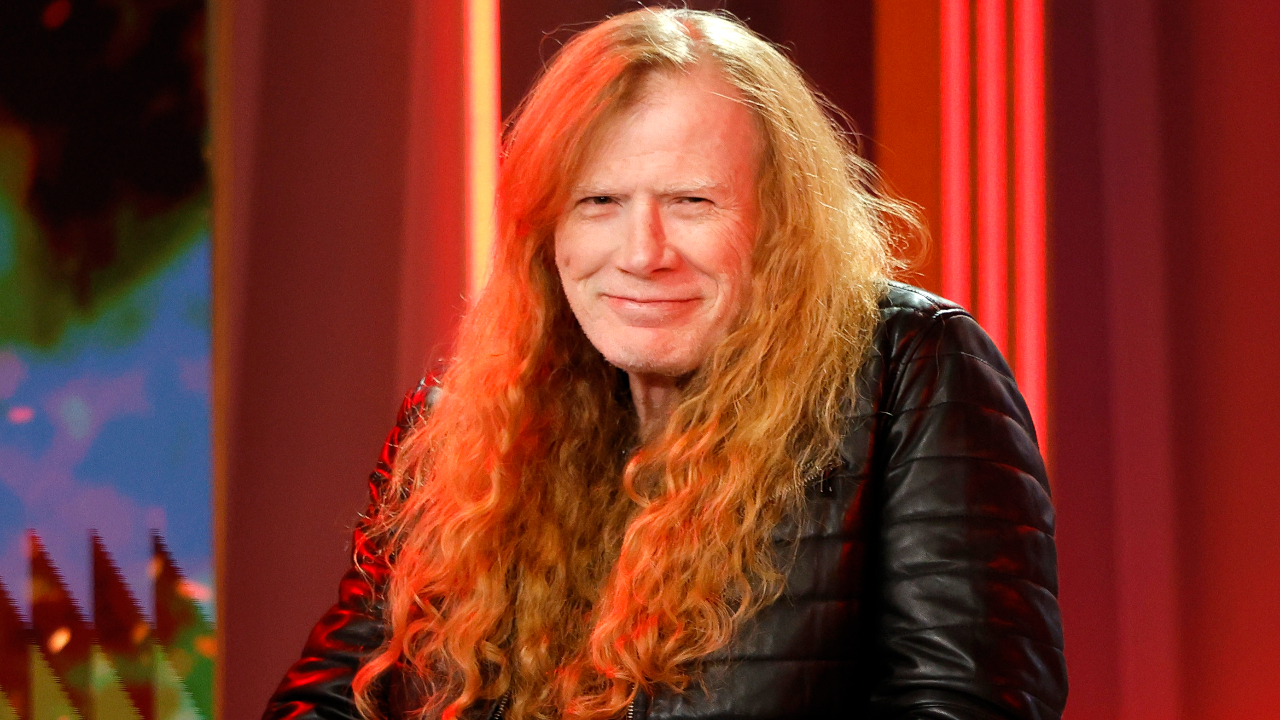There's a reason Black Sabbath's Geezer Butler doesn't have tattoos, and it involves Nazis
Black Sabbath bassist Geezer Butler reveals why an incident from his childhood means he's never been interested in getting a tattoo

Select the newsletters you’d like to receive. Then, add your email to sign up.
You are now subscribed
Your newsletter sign-up was successful
Want to add more newsletters?

Every Friday
Louder
Louder’s weekly newsletter is jam-packed with the team’s personal highlights from the last seven days, including features, breaking news, reviews and tons of juicy exclusives from the world of alternative music.

Every Friday
Classic Rock
The Classic Rock newsletter is an essential read for the discerning rock fan. Every week we bring you the news, reviews and the very best features and interviews from our extensive archive. Written by rock fans for rock fans.

Every Friday
Metal Hammer
For the last four decades Metal Hammer has been the world’s greatest metal magazine. Created by metalheads for metalheads, ‘Hammer takes you behind the scenes, closer to the action, and nearer to the bands that you love the most.

Every Friday
Prog
The Prog newsletter brings you the very best of Prog Magazine and our website, every Friday. We'll deliver you the very latest news from the Prog universe, informative features and archive material from Prog’s impressive vault.
As a founding member of Black Sabbath, Geezer Butler has seen and done things most humans will never experience. And over the past years, the Aston, Birmingham bassist has found the time to revisit and document some of these lived experiences, which have now been included in his first memoir, Into The Void - From Birth to Black Sabbath – and Beyond, published earlier this month.
One now-common rite of passage which the bassist has yet to experience, however, is getting a tattoo. And in one of the early chapters of Into The Void he explains exactly why.
To give some context here, Geezer - or Terence Michael Joseph Butler, to give him his full name - is the youngest of seven children born to Irish immigrant parents, James and Mary Butler in the summer of 1949. Geezer's Dublin-born father had joined the Royal Scots regiment at the age of 18, and served as an auxiliary fire fighter during World War II, a time when his adopted hometown of Birmingham was heavily bombed by the Nazis. In his memoir, Geezer recalls that one of his older brothers, Peter, born during war time, subsequently developed a "fascination" with Hitler and the Nazis as a young teenager, and began to amass a collection of Nazi regalia, including a banned-in-the-UK vinyl record of Hitler's speeches, which he picked up on a visit to Ireland, and subsequently listened to in secret in his bedroom.
So enthralled by this new taboo hobby was young Peter that, at the age of 16, he visited a local tattoo parlour and had a swastika with a sword running through it inked on his forearm. Understandably, given that memories of sheltering his children from falling German bombs in Birmingham's air raid shelters were still raw in his mind, James Butler was not at all impressed by his boy's new acquisition.
"Dad went absolutely nuts when he saw it," Geezer recalls in print. "The tattoo got infected, which served [Peter] right. And when Peter recovered from his fever, Dad made him return to the parlour and get it changed to something less offensive. He ended up with some roses, with 'MOM' written underneath."
"Mercifully," Geezer continues, "once he discovered girls, Hitler and the Nazis became a thing of the past - and I've never wanted a tattoo because of what happened to him."
Elsewhere in his highly entertaining book, specifically in the epilogue, Butler reveals that he and Ozzy Osbourne are no longer on speaking terms, due to some bad blood between their respective spouses.
"Me and Ozzy are fine, it's just that we're both ruled by our wives," the bassist writes, adding that Ozzy has "a big heart and was always there for me in times of trouble."
"We might not be as close as we were," he reflects, "but we'll always be brothers. How could we not be, given everything that we went through together?"
Now resident in the US, Butler's links with his hometown remain strong: just two days ago the bassist posted a photo on Instagram showing his grandchildren - Isadora, Lina, Pippa and Guy - sitting on the Black Sabbath bench on the city's Black Sabbath Bridge.
Sign up below to get the latest from Classic Rock, plus exclusive special offers, direct to your inbox!
A post shared by Geezer Butler (@geezerbutler)
A photo posted by on

A music writer since 1993, formerly Editor of Kerrang! and Planet Rock magazine (RIP), Paul Brannigan is a Contributing Editor to Louder. Having previously written books on Lemmy, Dave Grohl (the Sunday Times best-seller This Is A Call) and Metallica (Birth School Metallica Death, co-authored with Ian Winwood), his Eddie Van Halen biography (Eruption in the UK, Unchained in the US) emerged in 2021. He has written for Rolling Stone, Mojo and Q, hung out with Fugazi at Dischord House, flown on Ozzy Osbourne's private jet, played Angus Young's Gibson SG, and interviewed everyone from Aerosmith and Beastie Boys to Young Gods and ZZ Top. Born in the North of Ireland, Brannigan lives in North London and supports The Arsenal.
